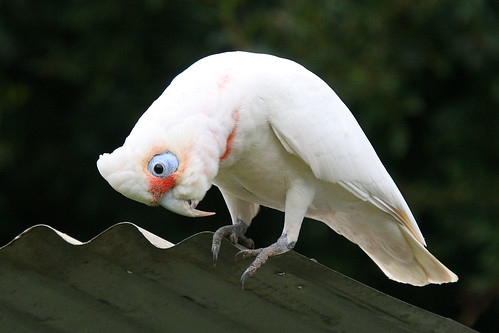Cocky cull for Busselton beachfront
 Monday, July 6, 2009 at 14:12
Monday, July 6, 2009 at 14:12  Long-billed CorellaTwo species of native corella that have reached pestilent proportions may soon be exterminated from the Busselton beachfront.
Long-billed CorellaTwo species of native corella that have reached pestilent proportions may soon be exterminated from the Busselton beachfront.
Busselton Shire councillor Bernie Masters says the corellas have been building up over the past decade, and he wants the WA Government to conduct a humane cull.
"For the last 10 years or so, one or more species of white cockatoo - corellas - have been found in the Busselton townsite in ever-increasing numbers," Cr Masters said.
"If they are exotic species from the eastern states that have escaped from aviaries or moved here from populations known to occur in the Perth metropolitan area, they pose significant risks to local species of parrots which use the same size and types of nesting hollows.
"They also pose a risk to some agricultural crops."
However, council officers have advised that most of the damage has been to tree species imported from eastern Australia - such as Norfolk Island pines and spotted gums.
The Department of Environment and Conservation has told the council that the little corella is exotic to the Southwest, having historically been found in the Wheatbelt. The DEC was mystified over why the parrots had muscled in on Busselton.
DEC advised that the little corella was now flocking in Bunbury with the long-bill corella (pictured) - an import from Eastern Australia. The second species originally escaped into the wilds of WA from aviaries, with up to 10 birds still being allowed per person without a licence.
A Busselton council paper obtained by WAtoday.com.au raised the spectre of shooting the introduced birds but considered this "difficult to undertake in urban areas given firearm usage requirements".
Poisoning was another an option considered "difficult to implement in urban areas due to threat to other birds and pets".
A third option of trapping the parrots would need to be managed carefully, the paper said.
DEC told the council that funding would be needed to control the pests in a managed way, which would include finding the corellas' nesting sites.
The Department of Agriculture and Food has named and shamed the long-bill corella on WA's declared pest list.
Council officers advised they would be happy to work with DEC and DAF to arrange a corella cull.

